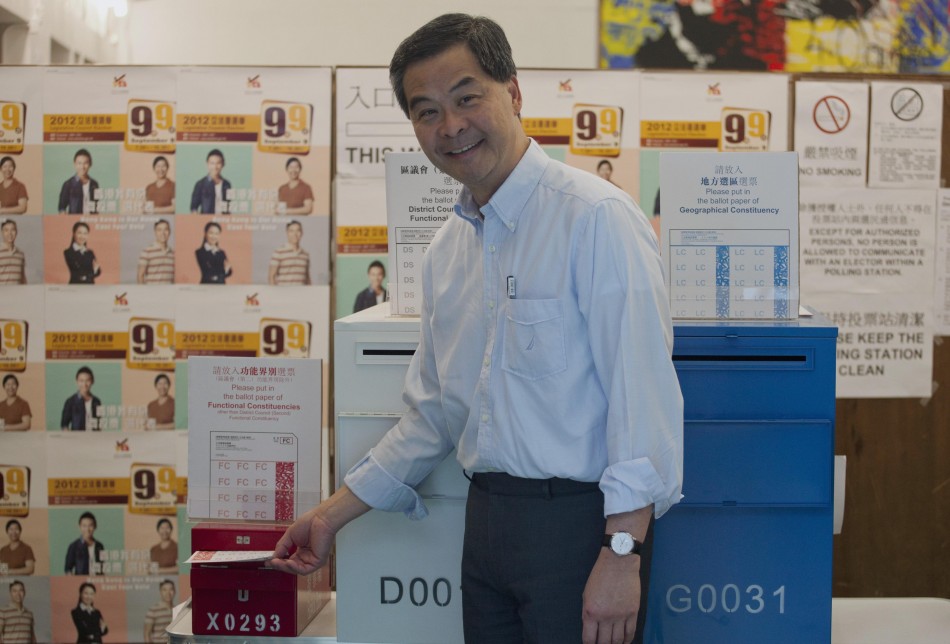Hong Kong Votes Amid Anti-China Sentiment [PHOTOS]
Patriotism classes scrapped on eve of voting day
The people of Hong Kong have started voting to elect a legislative council amid growing anti-Chinese sentiment.
Out of the 70 seats in the former British colony, 40 will be elected directly by the people for the first time. The remaining 30 seats will be chosen by a small group of top tycoons. Nearly 3.5 million people are eligible to vote.
People can cast their votes between 07:30 local time (23:30 GMT Saturday) and 22:30 local time. The results are expected to be in on Monday.
According to the Associated Press, the significance of the election lies in the way full democracy evolves in Hong Kong. Beijing is committed to letting the territory elect its own leader by 2017 and all legislators by 2020. The level of support pro- and anti-Beijing camps enjoy among voters is expected to determine the future course of Hong Kong's polity.
On the eve of voting day, the China-appointed Hong Kong chief executive Leung Chun-ying scrapped plans to introduce compulsory classes on patriotism. The plan was dubbed by pro-democracy activists as singing the praises of the Communist Party in China.
Leung caved in after a series of protests. Thousands of demonstrators have been on hunger strike outside the government headquarters for the last week.
The protesters say the move was intended to brainwash schoolchildren to make them loyal to Beijing's communist regime.
"We're giving the authority to the schools. This is very much in line with our school-based education policy," said Leung when revoking the plan. The mandatory lessons omitted certain anti-Chinese government events, including the historic Tiananmen Square protests of 1989.
"If it hadn't been for the decision of the last administration, national education would not have been on the agenda of this government. I would rather concentrate on housing, poverty and other livelihood issues. I've held numerous talks with the chief secretary on major policymaking, [and] none of our conversations ever touched on national education," Leung said, according to the South China Morning Post.
The election campaign was marred by allegations of corruption and concern over the growing number of visitors from mainland China. Anti-China activists who are contesting the election are expected to exploit the situation.
A voter told Reuters: "Before it didn't matter so much who got in, but this time, I thought it was important to vote to stop people and parties I didn't want from getting into the legislature."
Unlike China, Hong Kong has a relatively free press and its citizens enjoy the right to peaceful protest.







© Copyright IBTimes 2025. All rights reserved.





















